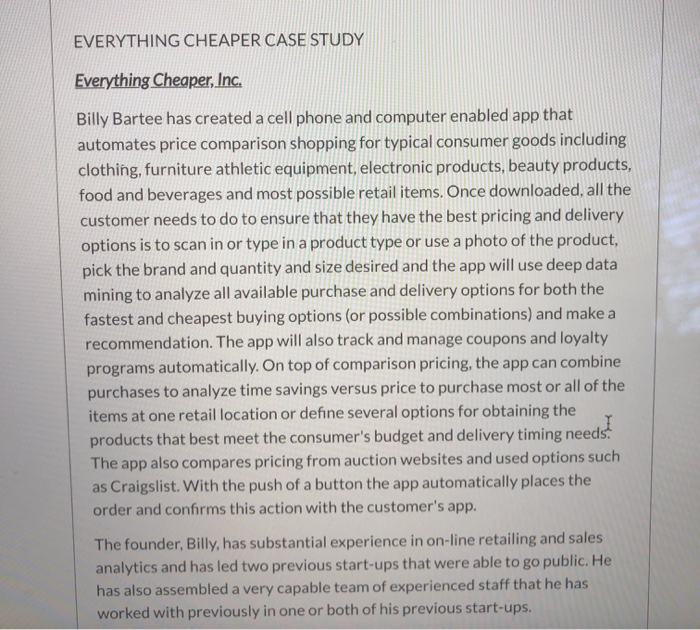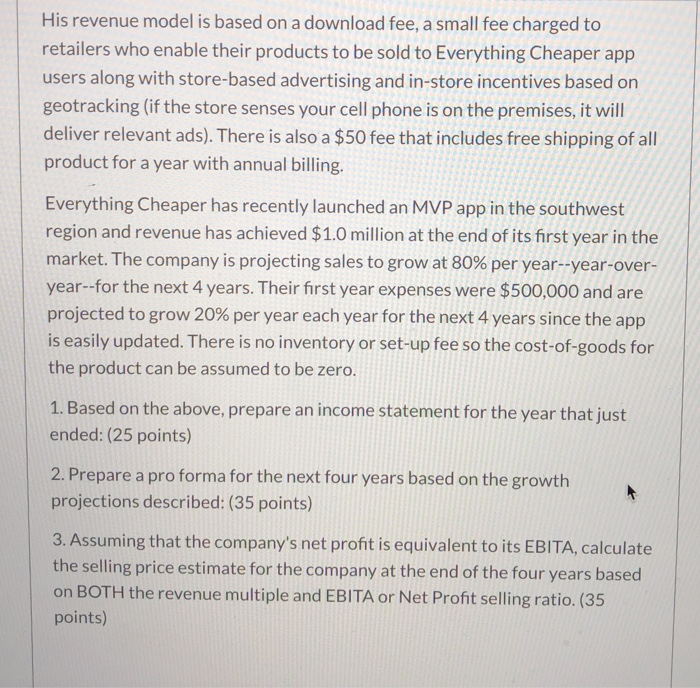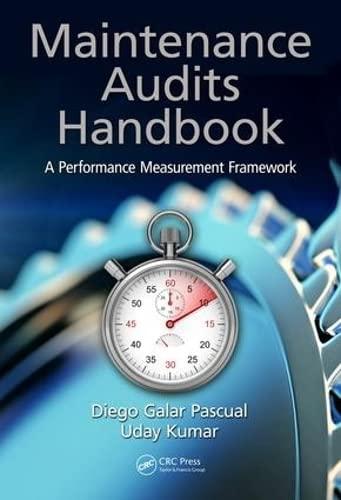EVERYTHING CHEAPER CASE STUDY Everything Cheaper, Inc. Billy Bartee has created a cell phone and computer enabled app that automates price comparison shopping for typical consumer goods including clothing, furniture athletic equipment, electronic products, beauty products, food and beverages and most possible retail items. Once downloaded, all the customer needs to do to ensure that they have the best pricing and delivery options is to scan in or type in a product type or use a photo of the product, pick the brand and quantity and size desired and the app will use deep data mining to analyze all available purchase and delivery options for both the fastest and cheapest buying options (or possible combinations) and make a recommendation. The app will also track and manage coupons and loyalty programs automatically. On top of comparison pricing, the app can combine purchases to analyze time savings versus price to purchase most or all of the items at one retail location or define several options for obtaining the products that best meet the consumer's budget and delivery timing needs: The app also compares pricing from auction websites and used options such as Craigslist. With the push of a button the app automatically places the order and confirms this action with the customer's app. The founder, Billy, has substantial experience in on-line retailing and sales analytics and has led two previous start-ups that were able to go public. He has also assembled a very capable team of experienced staff that he has worked with previously in one or both of his previous start-ups. His revenue model is based on a download fee, a small fee charged to retailers who enable their products to be sold to Everything Cheaper app users along with store-based advertising and in-store incentives based on geotracking (if the store senses your cell phone is on the premises, it will deliver relevant ads). There is also a $50 fee that includes free shipping of all product for a year with annual billing. Everything Cheaper has recently launched an MVP app in the southwest region and revenue has achieved $1.0 million at the end of its first year in the market. The company is projecting sales to grow at 80% per year--year-over- year--for the next 4 years. Their first year expenses were $500,000 and are projected to grow 20% per year each year for the next 4 years since the app is easily updated. There is no inventory or set-up fee so the cost-of-goods for the product can be assumed to be zero. 1. Based on the above, prepare an income statement for the year that just ended: (25 points) 2. Prepare a pro forma for the next four years based on the growth projections described: (35 points) 3. Assuming that the company's net profit is equivalent to its EBITA, calculate the selling price estimate for the company at the end of the four years based on BOTH the revenue multiple and EBITA or Net Profit selling ratio. (35 points)








